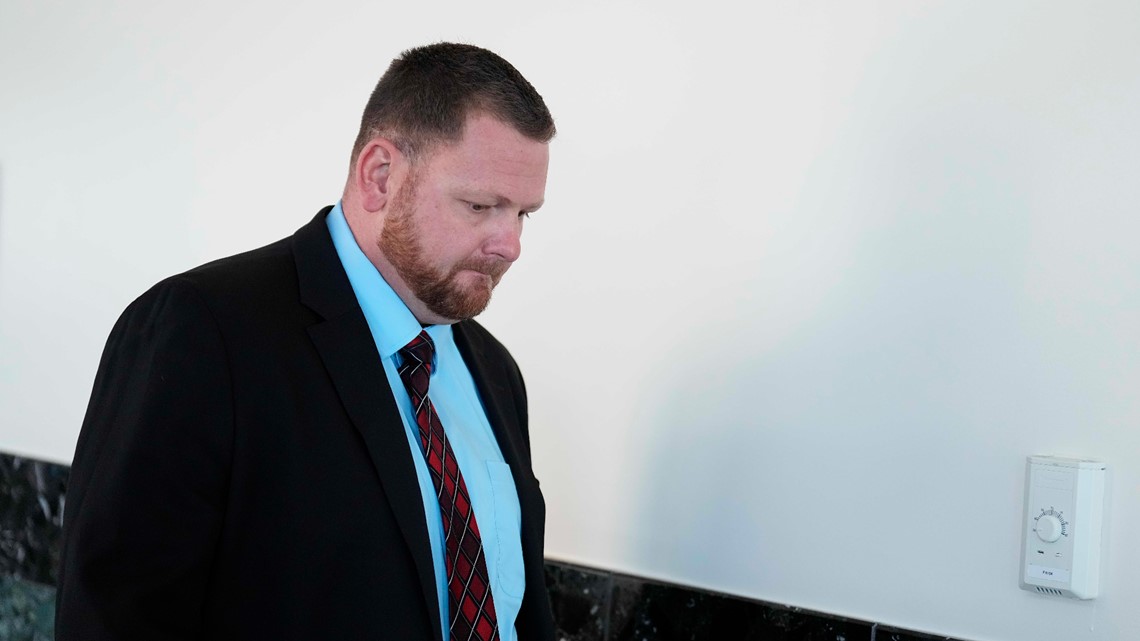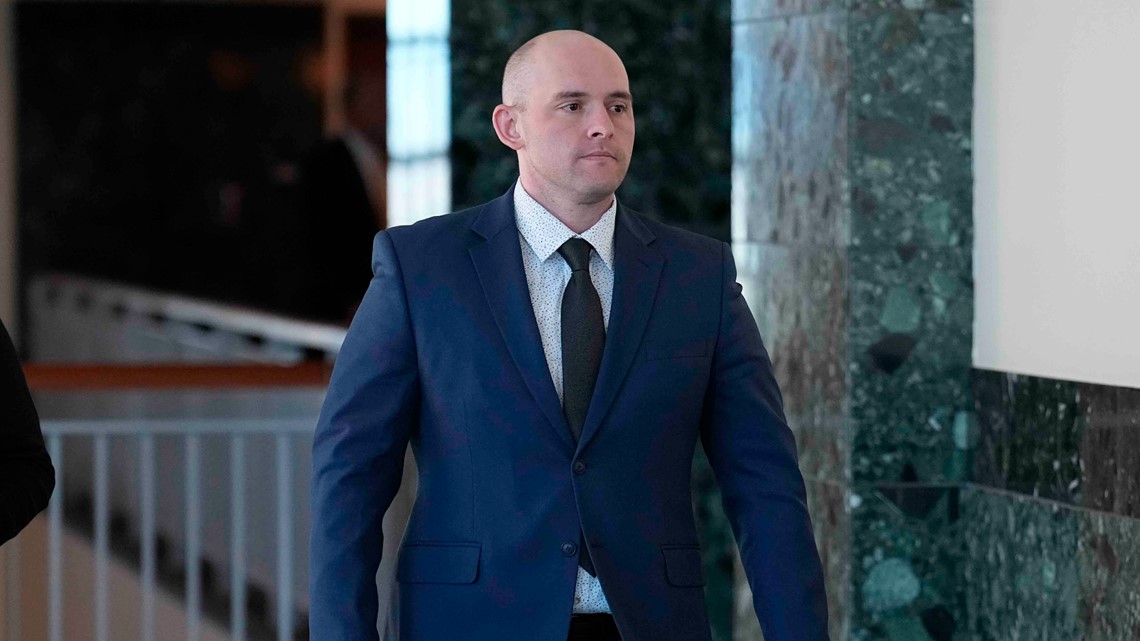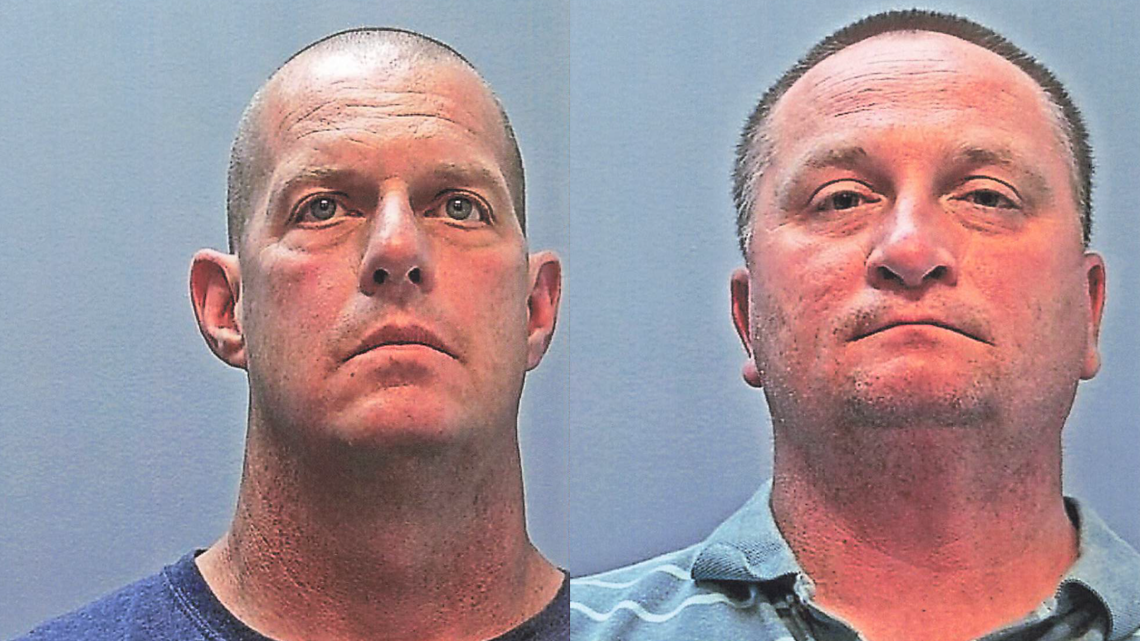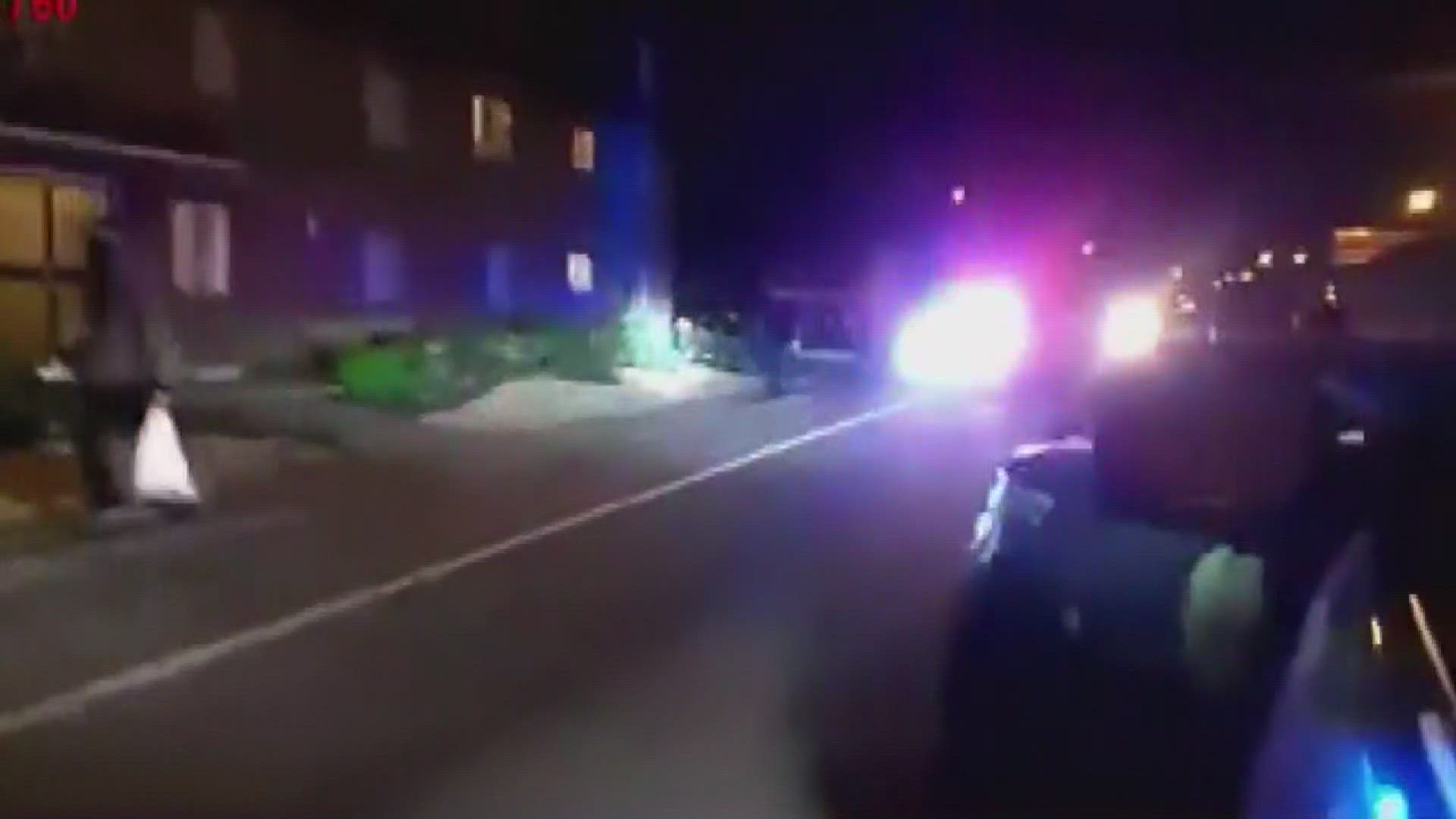AURORA, Colo — The first witness to testify Thursday in the trial of two Aurora officers charged in the 2019 death of Elijah McClain focused on the body-worn camera footage recorded on the night officers confronted the 23-year-old man.
It was Aug. 24, 2019, when a teenage boy called 911 and relayed that he saw McClain wearing a coat and mask and acting "suspicious." Less than a minute after police arrived, McClain was taken to the ground and engaged in a struggle with three Aurora officers.
Later that same night, he was injected with ketamine, a sedative, by paramedics. McClain's heart stopped, and he was taken off life support three days later.


It wasn't until September 2021 that a grand jury returned indictments against the officers and two paramedics. Two of them, suspended officer Randy Roedema, 41, and former officer Jason Rosenblatt, 34, are currently on trial for charges of reckless manslaughter and second-degree assault.
After opening statements Wednesday, jurors heard the first testimony Thursday in the trial that's expected to last four weeks. Aurora Police Lt. Delbert Tisdale testified about the more than 40 videos related to the response. Portions of some of those videos were played in court, and Tisdale was asked to identify the people in them or identify who said certain things.
According to court testimony, a sergeant arrived at the scene roughly three minutes after officers went "hands-on" with McClain. About 19 and a half minutes later, McClain was placed on a gurney and taken to the hospital.
The second witness to testify was an audio and video expert. David Notowitz was retained by prosecutors to enhance body-worn camera footage. In some instances, he brightened videos that were dark or enhanced audio that was hard to hear. He also created a slow-motion video showing a portion of Roedema's body camera and another clip that is a split screen of several videos showing different perspectives of what was going on at the same time.
He spent hours on the stand Thursday, talking about the process he used to edit the videos. Attorneys for the officers challenged whether the videos should be admitted into evidence, but most of them were.
Two videos were admitted for "demonstrative purposes" only, meaning the jury could watch the videos but could not consider them as evidence. None of the videos were shown in court Thursday but will likely be shown at a later time.


During opening arguments Wednesday, prosecutors argued that the officers failed to follow policy after a carotid hold, which can cut off oxygen to the brain, was used to bring McClain to the ground. They noted that both Roedema and Rosenblatt had had training in the days and weeks before McClain's death about the potential dangers of carotid holds and knew they were supposed to check vitals after doing one. Prosecutors alleged that officers never checked McClain's vitals.
"He [McClain] is saying, over and over and over again, 'I can't breathe, Please help me, I can't fix myself,' Seven times, 'I can't breathe,'" said prosecutor Jonathan Bunge. "Were the officers trained in what to do in that situation? Absolutely. They were trained when someone says they can't breathe, it is a medical emergency."


Defense attorneys for the officers said they did follow their policy and training and that McClain resisted their efforts to contact him and grabbed for Rosenblatts's gun – something prosecutors dispute.
The defense also blamed the paramedics for McClain's death, saying that it was their decision alone to inject him with ketamine, a sedative.
"Jeremy Cooper, not these defendants, say yeah, I'm going to give him 500 milligrams of ketamine," said Reid Elkus, who represents Roedema. "In sum, Mr. McClain died because paramedic Cooper injected him with 1.7 to 1.8 times the ketamine for someone his weight and size."


Cooper and Peter Cichuniec, the two paramedics who responded to the call, are set for trial in November. They are each charged with reckless manslaughter and numerous counts of assault.
Another officer, Nathan Woodyard, who was the first to respond to the call about McClain, was also indicted on a charge of reckless manslaughter. His trial is set to begin in mid-October.
Court will resume at 9 a.m. Friday.
SUGGESTED VIDEOS: Elijah McClain death

